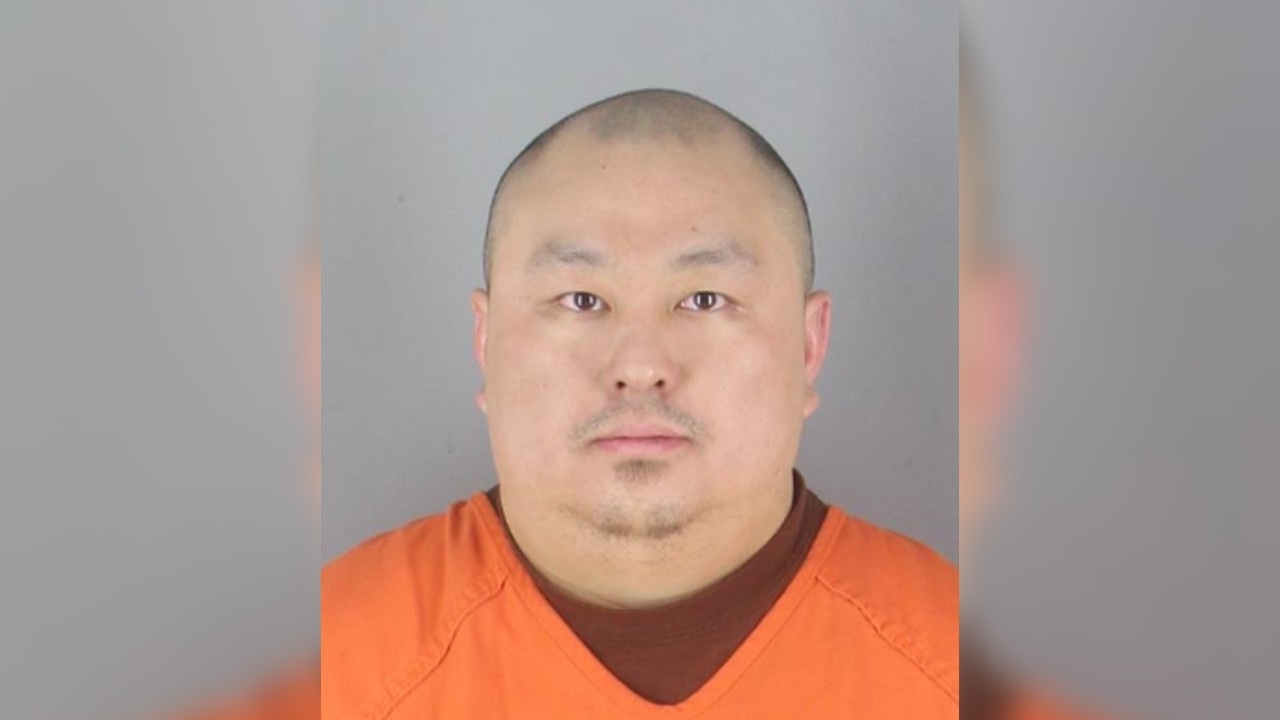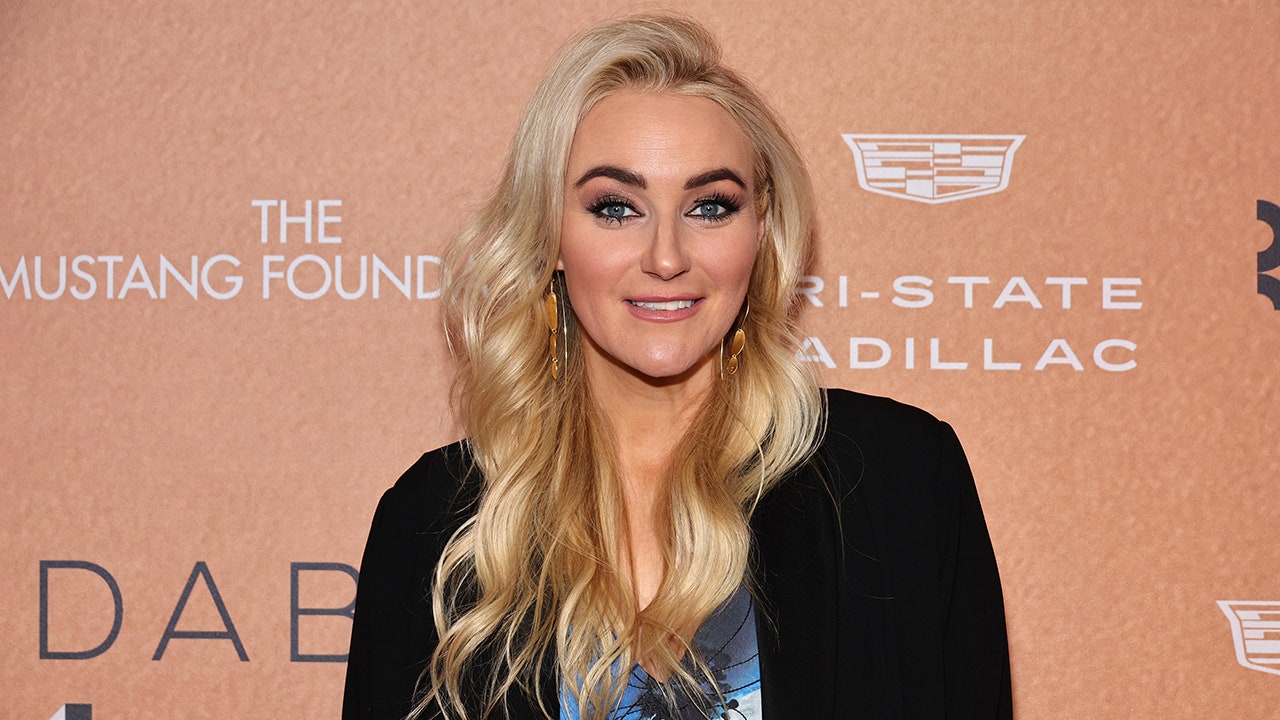Arizona
Chief: Officers fatally shot man who attacked officer in cruiser
/cloudfront-us-east-1.images.arcpublishing.com/gray/CJN6GOYARJAJTC3SE2XI3AB5LY.png)
ALEXANDRIA, Va. (AP) — Virginia police officers shot and killed a man who had attacked a third police officer inside his cruiser, the police chief said.
A Fairfax County police officer was investigating a U-Haul truck at a gas station in the Alexandria area that had been reported stolen and approached a man standing beside the truck Thursday, police Chief Kevin Davis said at a news conference.
Police say the officer informed the man that he was going to be detained in connection with the stolen truck. The man then shoved the officer through the open door of his cruiser and got on top of the officer, attacking him, Davis said. The cruiser then reversed out of control into the parking lot of a neighboring McDonald’s restaurant, where it hit a parked car.
At that point the officer broadcast calls for help saying the man had his gun, Davis said.
Two uniformed officers arrived. One fired several rounds and the other ran toward the vehicle, pulled the man off the officer being attacked and fired, striking the man, who died on the scene, Davis said.
“This scene was highly unusual and I’ve been on a lot of these scenes. I have never quite seen something like this,” Davis said. “That police officer, this was literally inside of his own police car fighting for his life.”
The officer had cuts, scrapes, bruises and a bloody right eye. Police said Friday that he has been released from the hospital.
On Friday, police identified the man who died as Brandon Lemagne, 38, of Newport News. He died at the scene Thursday.
Davis said investigators were reviewing body camera footage of the incident. The two officers who fired their weapons had 24 and eight years of service, respectively. They have been placed on restricted duty while the shooting is investigated.
Copyright 2023 The Associated Press. All rights reserved.

Arizona
Devyn Netz throws perfect game, hits home run in Arizona softball’s run-rule defeat of BYU

Devyn Netz can do it all. She proved it against BYU on Thursday afternoon, throwing a perfect game and hitting a home run in a five-inning run-rule victory. The No. 11 Arizona Wildcats defeated the Cougars 8-0 at Gail Miller Field in Provo, Utah.
Netz commanded the zone and got some strong play from her defense behind her. Freshman third baseman Jenna Sniffen was a machine all game, starting the 5-3 putout time and again.
The best play was the final one, and it came from second baseman Kiki Escobar. BYU pinch hitter Keila Kamoku hit a hard ball toward Escobar, who knocked it down. The question was whether she could get it and throw to Miranda Stoddard at first in time. Escobar kept her cool and made the play just in time.
Netz was the star of the show, though. Arizona had a combined perfect game thrown by Brooke Mannon and Ali Blanchard last season, but the last time a pitcher threw a solo perfect game was in 2017. Michelle Floyd performed the feat against Hartford that year. The last to do it in conference play was Kenzie Fowler against Oregon State in 2010.
Netz became just the sixth Arizona pitcher to throw a solo perfect game in program history. Eight pitchers have achieved it either solo or combined. Thirty-one Wildcat pitchers have now thrown a no-hitter, either solo or combined.
Netz is a complete player. It didn’t stop at her pitching performance. She also made strong plays on defense and showed her prowess in the batter’s box.
Arizona came into the top of the fifth with a 6-0 lead. They needed two runs to be in position to close the game out in five innings in the bottom of the inning. The redshirt senior provided the RBI to reach the eight-run plateau.
Kaiah Altmeyer walked on four straight pitches to lead off. Netz took one ball then smacked the next pitch over the fence.
Arizona’s all-around dominance took a little while to get going. While Netz was locked in as a pitcher from the beginning, the offense took a few at-bats to take over.
The middle of the order had a tough time in their last game at Arizona State on Sunday. That wasn’t the case in Provo.
While Netz struck out to end the first and had a foul-out in a prime scoring opportunity in the third, the four through seven hitters did a ton of damage overall. Five-hole hitter Sydney Stewart walked to lead off the second inning. No. 6 hitter Stoddard took two strikes before knocking the ball out of the park to give Arizona a 2-0 lead in the second.
The scoring in the third inning was a prime example of scoring runs any way you can, which head coach Caitlin Lowe talked about before the team left for BYU.
It started with a single by Dakota Kennedy. Regan Shockey put two on with no outs with an error on the shortstop that could have been ruled a hit. Kaiah Altmeyer moved both into scoring position with a flyout to centerfield.
That brought Netz up just needing to repeat Altemeyer’s at-bat to get another run across. The foul-out made it more difficult for Arizona to tack on some runs.
Stewart’s infield single pushed Kennedy across and moved Shockey to third. Stoddard walked to load the bases with two outs.
It was on freshman Anyssa Wild to make something happen. It was a big occasion for Arizona’s designated player. She was once committed to play for BYU but took the field for her hometown Wildcats.
Wild grounded out in her first at-bat. This time, she knocked a ball all the way to the wall, driving in three runs with her first career double. It put the Wildcats up 6-0 and set up the fifth-inning heroics of Netz.
Netz threw just 45 pitches to 15 batters in five innings. She struck out two.
The Wildcats’ offense had six hits, including a double and two home runs. They also took advantage of five walks and one BYU error.
All eight RBI came from the four through seven hitters as did five of the six hits. Stewart was 2 for 3 with one RBI at the plate. Stoddard was 1 for 2 with a walk and a home run. She had two RBI. Wild led the team with three RBI while going 1 for 2 and drawing a walk.
Arizona improved to 30-5 on the season and 7-3 in Big 12 play. BYU is now 20-7 overall and 4-3 in league play.
Lead photo courtesy of Arizona Athletics
Arizona
Bill aiming to keep Axon from leaving Arizona advances as battle lines are drawn

At Axon rally in Phoenix, Arizona Sen. David Gowan talks to employees
Sen. David Gowan talks at an Arizona Capitol rally to support a bill to squash a referendum attempt against Axon’s proposed Scottsdale headquarters.
- Taser company Axon wants to build a new headquarters in Scottsdale, Arizona, but plans for apartments are causing controversy.
- Opponents argue Scottsdale has enough apartments and want Axon to build without housing, while the company says it’s essential for attracting employees.
- The Arizona House is considering a bill that would override local zoning laws and allow the project to proceed, despite a referendum challenging the development.
A bill that would pave the way for Taser maker Axon to build its campus in north Scottsdale cleared its first hurdle, but the company’s desire to build apartments remains the crux of a controversy in which neither side is willing to budge.
Opponents to the bill, which would loosen zoning laws to allow apartments and hotels to be built as ancillary developments to corporate global headquarters, contend that Scottsdale has thousands of apartments in the development pipeline, and has no need for more.
Supporters of the bill claim the company headquarters is not viable without the apartments, which will include units reserved for Axon employees. Axon, which posted revenues of $2.1 billion in 2024, says it will employ 5,500 people at the new headquarters, if it gets built.
Axon’s proposal includes an expanded global headquarters for the law enforcement technology company, along with a hotel and about 1,900 multifamily housing units, including both for-sale and for-rent units.
The proposal has been subject to intense controversy after a group opposing the project, called Taxpayers Awful Apartment Zoning Exemptions (TAAAZE) gathered enough signatures to force an election over the Scottsdale City Council’s late 2024 approval of the project.
The bill would effectively nullify any outcome of the referendum election, because if passed, the project would be allowed to be built with the site’s existing zoning without the change that has been challenged.
The Arizona House of Representatives’ International Trade committee voted unanimously March 26 to advance the bill, with two members absent from voting.
The bill is still in the hearing process and requires approval from both the legislature and the governor before it could be enacted into law.
Apartments ‘100%’ the source of the Axon HQ controversy
At the committee hearing, all three speakers who spoke in opposition to the bill said without the apartments, they would embrace Axon. Two Scottsdale councilmembers, Vice Mayor Jan Dubauskas and Councilman Barry Graham, spoke in opposition to the bill, along with former Arizona legislator Michelle Ugenti-Rita, who spoke on behalf of TAAAZE.
When questioned by legislators on the committee, Ugenti-Rita said apartments were “100%” the reason behind her group’s opposition, but said the bill’s subversion of the referendum process denies Scottsdale residents their right to vote on the issue.
“This isn’t about taking care of jobs or economic growth,” she said in the hearing, which was standing room only, full of Axon employees wearing matching yellow shirts. “This is about one man who wants to avoid an election.”
Ugenti-Rita said the issue should be decided by Scottsdale residents and leadership, not at the state level.
If the proposal was so strong, she said, Axon executives would be in Scottsdale working to gain support, not trying to avoid a potential loss at the election.
TAAAZE members who have led the charge opposing Axon have said they are prepared to sue the state over the bill if it is passed into law.
“Axon can expect a tooth-and-nail fight in court if its bill survives,” Bob Littlefield, former Scottsdale Councilman and leader of TAAAZE, said in an email. “In addition, TAAAZE is prepared to challenge this legislation via referendum at the ballot box, assuming Axon doesn’t convince the legislature to take away more voting rights.”
Both Dubauskas and Graham echoed that their opposition only hinged on the apartments.
“Residents would look me in the eye and say, ‘Can you stop the apartments?’” Dubauskas said of her time campaigning for City Council.
Scottsdale is proud to have Axon in the community, she said, adding there is no opposition over the hotel and restaurant uses proposed on the site.
Graham was on the city’s Planning Commission when Axon brought forward the first version of the plan, which involved only the company’s global headquarters. He said at the time he supported the proposal, which did not include apartments.
However, Graham said he hoped his opposition to the apartments did not drive Axon away from the city.
“They purchased their property with the zoning, and we hope they use it to its fullest extent,” he said.
Scottsdale’s ‘anti-development’ stance criticized
However, lawmakers on the committee said they felt frustrated with the opposition to the development without effort to compromise, and said they felt there was an overall anti-development sentiment from Scottsdale.
Graham said he disagreed with the notion that Scottsdale is anti-development and said there are many new developments in the pipeline that were approved by the city.
House Majority Leader Michael Carbone, a Republican from Buckeye, said Scottsdale has not supported statewide legislation that promotes housing or attempts to make homeownership more affordable. They city, he said, has done little to make housing accessible for essential workers.
Justin Wilmeth, a Republican from north Phoenix, pointed to the Arizona Coyotes’ attempt to develop a site in Phoenix that bordered Scottsdale. While the site was in Phoenix, then-Scottsdale Mayor David Ortega voiced opposition for the project because of its proximity to Scottsdale.
“The Arizona Coyotes should be on (that site) and you guys helped mess that up,” Wilmeth said of the Scottsdale City Council.
Consuelo Hernandez, a Democrat from Tucson, said the opposition to the apartments “screams ‘not in my backyard.’”
The three speakers who addressed the committee opposing the bill said they would be willing to meet with Axon to negotiate, but did not provide specific points that would lead to a consensus.
Bill supporters: Keeping a global headquarters in Arizona is essential
Without the bill, the Axon proposed development is scheduled to go before Scottsdale voters in November 2026. However, company executives have repeatedly said there is no willingness to wait that long for a decision on the future headquarters location.
Axon CEO Rick Smith said the company’s board of directors has given him a deadline of the end of the legislative session to decide.
Supporters of the bill who spoke at the hearing were Peoria Mayor Jason Beck, Greater Phoenix Leadership CEO Neil Giuliano and Arizona Chamber of Commerce and Industry CEO Danny Seiden.
Guiliano said having a company’s global headquarters in Arizona can drive further economic development, and said a campus like the one Axon is proposing is a sustainable approach that allows people to live near their jobs if they choose.
Having housing options in a city for workers who work there is important, Seiden said.
New businesses, new jobs and company relocations to Arizona are things that any city would want and celebrate, he said.
“To say we don’t want workers to be able to afford to live in the same city, that’s just not right,” he said.
When asked by Rep. Stacey Travers, a Democrat from Phoenix, if there were any other businesses that would also be able to use the proposed benefits in the legislation, Seiden said he did not know of any others, but that the bill would set the stage for others to consider Arizona as a corporate headquarters location.
Beck, mayor of Peoria and CEO of Tyr Tactical, a manufacturer of law enforcement safety equipment, said the consequences of not finding a way to secure Axon in Arizona would be “catastrophic to economic development.”
“I’d take this opportunity in a heartbeat, and I would beg for it,” Beck told the committee.
Legislators request negotiation between Axon, Scottsdale
Several members of the committee said they voted in favor of moving the bill forward, but would prefer to see a productive dialogue between the city and Axon.
While they could not require the two groups to meet, legislators said they hoped there could be a solution worked out between parties.
After the hearing, Scottsdale Mayor Lisa Borowksy said in a statement she would like to work with the company on a compromise.
“I stand ready to work with Axon to achieve reasonable goals with their leadership while protecting our city and our residents’ interests,” she said in a statement. “I am a strong believer in ‘the art of the possible’ and I am confident we can achieve a workable solution, if all in good faith. I hope I can count on Rick Smith and his team to do the same.”
Like this story? Get more East Valley news straight into your email inbox by signing up for our free weekly East Valley Newsletter, which comes out on Wednesdays.
Corina Vanek covers development for The Arizona Republic. Reach her at cvanek@arizonarepublic.com. Follow her on X @CorinaVanek.
Arizona
Arizona Secretary of State Adrian Fontes won’t run for Grijalva’s seat in Congress
Arizona Secretary of State Adrian Fontes announced he would not run for a U.S. House of Representatives seat left empty after the death of southern Arizona political icon Rep. Raúl Grijalva.
After telling journalists and his staff that he was “seriously considering” a candidacy, Fontes, a Democrat, said on March 26 he instead would focus on administering elections.
“With this week’s executive order from the Trump administration, I firmly believe the president is laying the groundwork to cancel the election in 2026,” Fontes said.
“I have considered the pros and cons of running for Congress. It is clear to me that our party must fight harder and stand up to the rising tide of fascism sweeping this nation,” he said in a statement.
Fontes cited Trump’s most recent executive order that would require proof of citizenship in a federal election, which was signed by the president March 25.
Fontes told Democratic attorney Marc Elias he believed a legal battle was on the horizon as President Trump attempted to change the process for the mid-term election of 2026.
“After careful thought and reflection, I have decided that for family, for country, and for democracy, I will continue to defend America as Arizona’s Secretary of State,” Fontes said.
Who are likely candidates for Grijalva’s seat?
The decision set up what election observers expected to be a two-way race between former state Rep. Daniel Hernandez Jr., who announced his run on March 24, and Adelita Grijalva, a daughter of the late congressman, who has not made a formal announcement to run.
Adelita Grijalva also serves on the Pima County Board of Supervisors in the same seat her father held decades ago.
Before Grijalva’s death, three other Democratic candidates — Andrew Becerra, David Bies and Abdul hadi Ghulam Habib — had filed paperwork indicating their interest in running for the 7th Congressional District seat in 2026.
As of March 26, 22 people had filed a statement of interest to run for the seat in the special election, including 10 Republicans, 10 Democrats, one Libertarian and one Green Party member.
The primary election will take place on July 15, and the general election will be held in September.
Arizona Republic reporters Laura Gersony and Mary Jo Pitzl contributed to this article.
Reach reporter Rey Covarrubias Jr. at rcovarrubias@gannett.com. Follow him on X, Threads and Bluesky @ReyCJrAZ.
-

 News1 week ago
News1 week agoVance to Lead G.O.P. Fund-Raising, an Apparent First for a Vice President
-

 News1 week ago
News1 week agoTrump Administration Ends Tracking of Kidnapped Ukrainian Children in Russia
-

 Business1 week ago
Business1 week agoEgg Prices Have Dropped, Though You May Not Have Noticed
-

 Technology1 week ago
Technology1 week agoChip race: Microsoft, Meta, Google, and Nvidia battle it out for AI chip supremacy
-

 World1 week ago
World1 week agoCommission warns Alphabet and Apple they're breaking EU digital rules
-

 News1 week ago
News1 week agoTrump’s Ending of Hunter Biden’s Security Detail Raises Questions About Who Gets Protection
-

 News1 week ago
News1 week agoZelenskyy says he plans to discuss Ukraine ceasefire violations in a call with Trump
-

 Movie Reviews1 week ago
Movie Reviews1 week ago‘Novocaine’ Movie Review – InBetweenDrafts



















